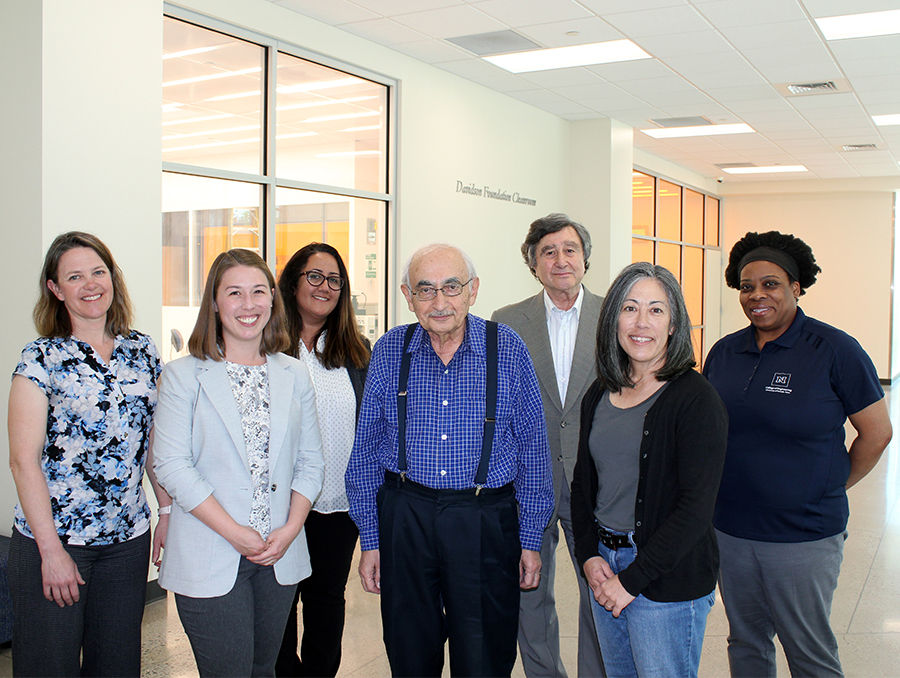A recently identified retrovirus called XMRV has been linked to a debilitating neuro-immune disease that affects more than one million people in the United States. Scientists from the Whittemore Peterson Institute (WPI), located at the University of Nevada School of Medicine on the University’s Reno campus, and their collaborators from the National Cancer Institute and the Cleveland Clinic, have discovered a retroviral link to Myalgic Encephalomyelitis/Chronic Fatigue Syndrome (ME/CFS).
They recently published their groundbreaking findings in the journal Science, one of the world’s leading journals of original scientific research, global news and commentary. The paper, entitled “Detection of Infectious Retrovirus, XMRV, in the Blood Cells of CFS Patients,” is a major breakthrough in understanding the origins of this disease.
“Since the original Science paper was submitted, we have continued to refine our test for XMRV and have surprisingly found that 95 percent ME/CFS samples tested positive for XMRV antibodies in the plasma. This finding clearly points to the retrovirus as a significant contributing factor in this illness,” said Judy Mikovits, Ph.D., director of research for WPI, an adjunct faculty member in the University of Nevada School of Medicine and leader of the team that discovered this association.
This landmark study was the first to isolate XMRV particles from the blood, and show that it can be transmitted between blood cells. XMRV was originally discovered in prostate cancer tissue of men with a specific genetic immune system defect by Dr. Robert H. Silverman of the Cleveland Clinic. A similar immune system defect in patients with ME/CFS led researchers to look for the virus in banked blood samples donated from several medical practices throughout the United States. Other retroviruses, such as HIV and HTLV-1, are known to cause cancer and immune deficiencies in humans. This study showed XMRV can be found in human blood cells and is infectious. Researchers have confirmed that this retrovirus is transmitted through body fluids and is not airborne.
WPI researchers have continued their in-depth studies of XMRV to clarify its effects on the human immune system. Scientists at WPI are clinically validating a blood test for the detection of XMRV in ME/CFS and other human diseases. X associated neuro-immune disease, or XAND, a new disease entity encompassing ME/CFS, will require additional research funding to find effective treatments for patients. With anticipated funding, WPI will begin the work of determining if any currently approved drugs can suppress XMRV, followed closely by human clinical trials to advance the most effective patient treatments.
“This is the breakthrough that we have been hoping for. Now we have scientific proof that this infectious agent is a significant factor in ME/CFS,” said Annette Whittemore, founder and president of WPI and mother of a ME/CFS patient. “Patients and their doctors will soon have a blood test to verify their diagnosis and provide the answers that they’ve been seeking.”
Daniel Peterson, medical director of WPI added, “Patients with ME/CFS (XAND) deal with a myriad of health issues as their quality of life declines. I’m excited about the possibility of providing patients who are positive for XMRV a definitive diagnosis, and hopefully very soon, a range of effective treatments options.”
“This is an incredibly significant discovery for those with Chronic Fatigue Syndrome, and it has important implications for the world of science and medicine,” said University of Nevada, Reno President Milt Glick. “Scientific breakthroughs are often iterative, and a finding of this magnitude can lead to additional discoveries and new research frontiers.”
Information relating to XMRV associated neuroimmune disease can be found at the Whittemore Peterson Institute. Those with XAND (ME/CFS) and/or fibromyalgia, interested in participating in research studies to further the development of diagnostic tests, should complete the questionnaire available at the Whittemore Peterson Institute.
The Center for Molecular Medicine, now under construction at the University of Nevada School of Medicine in Reno and slated to open fall 2010, is the future home of the Whittemore Peterson Institute.
“We believe in partnerships and are delighted to have the Whittemore Peterson Institute on our campus,” said Glick. “This scientific breakthrough speaks to the level of research happening in Nevada, and this will only be magnified with opening of the Center for Molecular Medicine which will be the future home of the Whittemore Peterson Institute.”
“We’re excited about the opening of our new facility next summer, which will not only add thousands of square feet to our existing laboratory space, but will also provide new space for comprehensive patient care,” added Whittemore.











